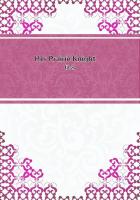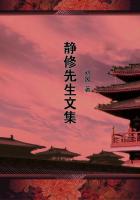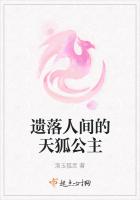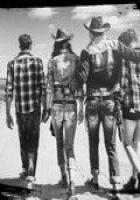It is his whole history, this Book. He died after finishing it; not yet very old, at the age of fifty-six;--broken-hearted rather, as is said. He lies buried in his death-city Ravenna: _Hic claudor Dantes patriis extorris ab oris_. The Florentines begged back his body, in a century after; the Ravenna people would not give it. "Here am I Dante laid, shut out from my native shores."I said, Dante's Poem was a Song: it is Tieck who calls it "a mystic unfathomable Song;" and such is literally the character of it. Coleridge remarks very pertinently somewhere, that wherever you find a sentence musically worded, of true rhythm and melody in the words, there is something deep and good in the meaning too. For body and soul, word and idea, go strangely together here as everywhere. Song: we said before, it was the Heroic of Speech! All _old_ Poems, Homer's and the rest, are authentically Songs. I would say, in strictness, that all right Poems are;that whatsoever is not _sung_ is properly no Poem, but a piece of Prose cramped into jingling lines,--to the great injury of the grammar, to the great grief of the reader, for most part! What we wants to get at is the _thought_ the man had, if he had any: why should he twist it into jingle, if he _could_ speak it out plainly? It is only when the heart of him is rapt into true passion of melody, and the very tones of him, according to Coleridge's remark, become musical by the greatness, depth and music of his thoughts, that we can give him right to rhyme and sing; that we call him a Poet, and listen to him as the Heroic of Speakers,--whose speech is Song.
Pretenders to this are many; and to an earnest reader, I doubt, it is for most part a very melancholy, not to say an insupportable business, that of reading rhyme! Rhyme that had no inward necessity to be rhymed;--it ought to have told us plainly, without any jingle, what it was aiming at. Iwould advise all men who _can_ speak their thought, not to sing it; to understand that, in a serious time, among serious men, there is no vocation in them for singing it. Precisely as we love the true song, and are charmed by it as by something divine, so shall we hate the false song, and account it a mere wooden noise, a thing hollow, superfluous, altogether an insincere and offensive thing.
I give Dante my highest praise when I say of his _Divine Comedy_ that it is, in all senses, genuinely a Song. In the very sound of it there is a _canto fermo_; it proceeds as by a chant. The language, his ****** _terza rima_, doubtless helped him in this. One reads along naturally with a sort of _lilt_. But I add, that it could not be otherwise; for the essence and material of the work are themselves rhythmic. Its depth, and rapt passion and sincerity, makes it musical;--go _deep_ enough, there is music everywhere. A true inward symmetry, what one calls an architectural harmony, reigns in it, proportionates it all: architectural; which also partakes of the character of music. The three kingdoms, _Inferno_, _Purgatorio_, _Paradiso_, look out on one another like compartments of a great edifice; a great supernatural world-cathedral, piled up there, stern, solemn, awful; Dante's World of Souls! It is, at bottom, the _sincerest_of all Poems; sincerity, here too,, we find to be the measure of worth. It came deep out of the author's heart of hearts; and it goes deep, and through long generations, into ours. The people of Verona, when they saw him on the streets, used to say, "_Eccovi l' uom ch' e stato all' Inferno_, See, there is the man that was in Hell!" Ah yes, he had been in Hell;--in Hell enough, in long severe sorrow and struggle; as the like of him is pretty sure to have been. Commedias that come out _divine_ are not accomplished otherwise. Thought, true labor of any kind, highest virtue itself, is it not the daughter of Pain? Born as out of the black whirlwind;--true _effort_, in fact, as of a captive struggling to free himself: that is Thought. In all ways we are "to become perfect through _suffering_."--_But_, as I say, no work known to me is so elaborated as this of Dante's. It has all been as if molten, in the hottest furnace of his soul. It had made him "lean" for many years. Not the general whole only; every compartment of it is worked out, with intense earnestness, into truth, into clear visuality. Each answers to the other; each fits in its place, like a marble stone accurately hewn and polished. It is the soul of Dante, and in this the soul of the middle ages, rendered forever rhythmically visible there. No light task; a right intense one: but a task which is _done_.
Perhaps one would say, _intensity_, with the much that depends on it, is the prevailing character of Dante's genius. Dante does not come before us as a large catholic mind; rather as a narrow, and even sectarian mind: it is partly the fruit of his age and position, but partly too of his own nature. His greatness has, in all senses, concentred itself into fiery emphasis and depth. He is world-great not because he is worldwide, but because he is world-deep. Through all objects he pierces as it were down into the heart of Being. I know nothing so intense as Dante. Consider, for example, to begin with the outermost development of his intensity, consider how he paints. He has a great power of vision; seizes the very type of a thing; presents that and nothing more. You remember that first view he gets of the Hall of Dite: _red_ pinnacle, red-hot cone of iron glowing through the dim immensity of gloom;--so vivid, so distinct, visible at once and forever! It is as an emblem of the whole genius of Dante.
There is a brevity, an abrupt precision in him: Tacitus is not briefer, more condensed; and then in Dante it seems a natural condensation, spontaneous to the man. One smiting word; and then there is silence, nothing more said. His silence is more eloquent than words. It is strange with what a sharp decisive grace he snatches the true likeness of a matter:


